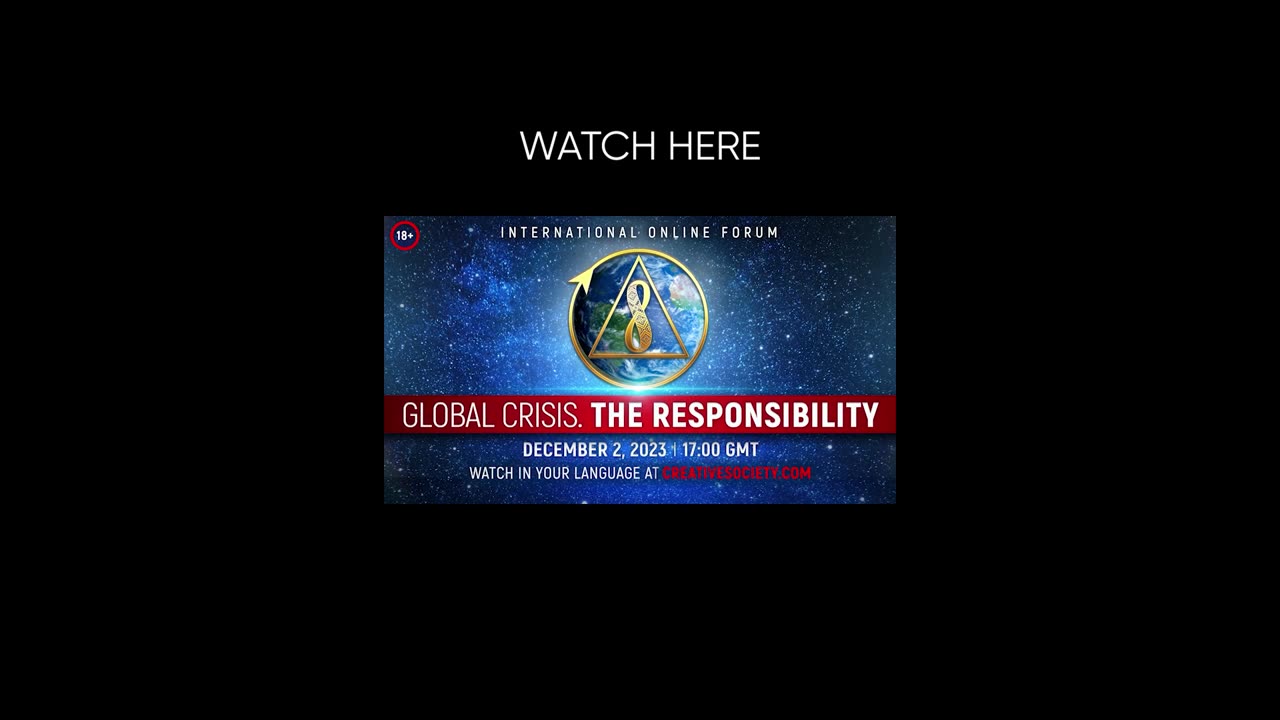Premium Only Content

How 2024 Changed the Global Climate Landscape. Part 1
Over the past few years, we have been closely monitoring the climate situation, analyzing events, and identifying patterns. This year made it unmistakably clear: the alarming trends observed earlier are now manifesting with greater intensity and frequency.
This video is not our usual weekly summary but an analytical report highlighting new and dangerous manifestations of climate disasters. As we prepared this material, we were shocked by how critical the planetary situation became in 2024. You'll see this for yourself.
🔻 Temperature Anomalies
Scientists believe that 2024 will be the warmest year on record. According to the European Climate Service "Copernicus," the average global temperature from January to November exceeded 2023 levels by 0.14°C. While this difference might seem minor, its consequences for humanity are profound.
Temperatures are breaking records, with heatwaves becoming more frequent, prolonged, and intense. Nearly every country in 2024 experienced record-breaking heat anomalies. Particularly dangerous are "tropical nights," when nighttime temperatures don't drop below +20°C, preventing both people and ecosystems from recovering. Astonishingly, tropical nights now even occur in winter.
Seasons appear to blend together: abnormal heat is suddenly replaced by extreme cold, causing significant damage to agriculture.
🔻 Drought
We face a paradox: despite increased extreme rainfall, droughts are becoming more frequent and severe. Droughts are now occurring in areas where they were once rare.
NASA's GRACE satellites have been recording critical declines in global freshwater reserves since 2014. Hundreds of river basins worldwide have seen reduced river flow, affecting 107.5 million people. Lakes around the globe are shrinking or disappearing entirely.
These processes are developing rapidly, are poorly predictable, and result in tragic consequences.
🔻 Wildfires
Droughts and heatwaves heighten the risk of wildfires, even in regions where they were previously uncommon. The wildfire season has disappeared — fires can now ignite at any time of year.
For example, in the U.S., the traditional peak wildfire season was from June to September. However, by February this year, nearly 568,000 hectares had already burned — a record for February.
In the past, fires primarily occurred in uninhabited natural zones, but now they increasingly spread to cities, making containment more challenging. Wildfires are becoming larger and more intense. While the number of fires in some regions remains stable, the area affected by fire has increased sharply.
An especially challenging phenomenon is degassing — the release of flammable gases from underground. This process, intensified by planetary activity, leads to fires along tectonic fault lines.
🔻 Tornadoes
Rising global temperatures and humidity create conditions for more powerful storms, often accompanied by tornadoes. Not only are we seeing an increase in the number of tornadoes across various countries, but also anomalies in their characteristics. The number of tornado days is decreasing, but the number of tornadoes on those days is sharply rising — a phenomenon researchers call "tornado outbreak intensification."
It is important to note that tornadoes typically form during warm months and predominantly during the day. However, these climate laws no longer hold true. Tornado geography is expanding, and they are increasingly occurring in regions where they were once rare.
In 2024, catastrophes shattered thousands of records — but these are records of destruction, not achievement. Even the smallest anomaly in a natural phenomenon can become fatal for billions of people. Ignoring these developments will not lead to normalization on its own.
Every one of our videos explores how to change the situation and offers pathways to solutions. We cannot stress enough: that responsibility lies with each of us. If your life and the lives of your loved ones matter, ignoring what is happening is not an option. Watch the international forum "Global Crisis. The Responsibility" to understand the problem in depth and learn what actions can be taken now.
The salvation of our lives is in our hands.
-
 49:24
49:24
Tactical Advisor
4 hours agoNew Holster & Home Defense Shotgun | Vault Room Live Stream 016
36.5K2 -
 LIVE
LIVE
Major League Fishing
3 days agoLIVE! - Bass Pro Tour: Stage 2 - Day 3
627 watching -
 4:44:39
4:44:39
SoundBoardLord
7 hours ago90's Cartoons, Chill Vibes, Good Conversations - SATURDAY MORNINGS WITH CASEY
35K3 -
 38:28
38:28
Anthony Pompliano
1 day ago $2.98 earnedPomp on BlackRock & Metaplanet Buying Bitcoin
45.4K -
 36:01
36:01
TimcastIRL
17 hours agoThe Green Room #82 - Timcast Discord & Building Culture in the Digital Space with Roma Nation
73.9K12 -
 1:00:59
1:00:59
IsaacButterfield
19 hours ago $1.53 earnedSHOCKING Nurses Rant About Killing Israelis | Kanye Bombshell | USAID Spending
21.7K21 -
 11:38
11:38
MrBigKid
23 hours ago $0.70 earnedSIG 556 Classic SWAT: The Swiss-Inspired Rifle for 'Merica
15K1 -
 1:13:32
1:13:32
Tommy's Podcast
2 months agoMedia Decentralization | Sam Anthony (TPC #1,640)
12.4K1 -
 1:01:05
1:01:05
Trumpet Daily
1 day ago $4.64 earnedMEGA Will Backfire on MAGA - Trumpet Daily | Feb. 14, 2025
11.9K20 -
 1:42:23
1:42:23
Game On!
16 hours ago $4.46 earnedEagles Super Bowl Parade EPIC Fail!
33.1K9